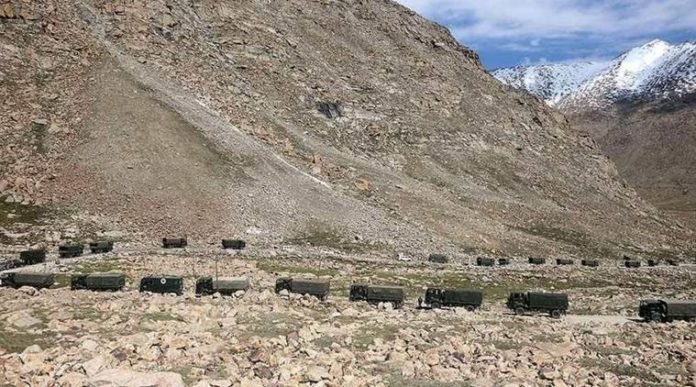New Delhi (NVI): India rejected today the Chinese contention that it was “unilaterally changing the status quo” on the Line of Actual Control (LAC) and asserted that the Chinese side was responsible for the face-off in Galwan Valley as it had attempted to transgress.
External Affairs Ministry spokesman Anurag Srivastava said India expects the Chinese side to “sincerely follow the understanding” reached between the Foreign Ministers of the two countries during their telephonic talk on June 17 “to ensure peace and tranquility in the border areas, which is so essential for the overall development of our bilateral relations.”
Responding to queries on the statement issued by the Chinese Foreign Ministry spokesperson yesterday, Srivastava said, “The position with regard to the Galwan Valley area has been historically clear. Attempts by the Chinese side to now advance exaggerated and untenable claims with regard to Line of Actual Control (LAC) there are not acceptable. They are not in accordance with China’s own position in the past.”
He said Indian troops are fully familiar with the alignment of the LAC in all sectors of the India-China border areas, including in the Galwan Valley and they “abide by it scrupulously here, as they do elsewhere.”
“The Indian side has never undertaken any actions across the LAC. In fact, they have been patrolling this area for a long time without any incident. All infrastructure built by the Indian side is naturally on its own side of the LAC,” the spokesman said.
Since early May 2020, the Chinese side has been hindering India’s normal, traditional patrolling pattern in this area, he said, adding “this had resulted in a face-off which was addressed by the ground commanders as per the provisions of the bilateral agreements and protocols.”
Srivastava asserted, “We do not accept the contention that India was unilaterally changing the status quo. On the contrary, we were maintaining it.”
He went on to add that in mid-May, the Chinese side “attempted to transgress the LAC in other areas of the Western Sector of the India-China border areas” and “These attempts were invariably met with an appropriate response from us. Thereafter, the two sides were engaged in discussions through established diplomatic and military channels to address the situation arising out of Chinese activities on the LAC.”
The Senior Commanders met on June 6, 2020 and agreed on a process for de-escalation and disengagement along the LAC that involved reciprocal actions, the MEA spokesman said.
“Both sides had agreed to respect and abide by the LAC and not undertake any activity to alter the status quo. However, the Chinese side departed from these understandings in respect of the LAC in the Galwan Valley area and sought to erect structures just across the LAC. When this attempt was foiled, Chinese troops took violent actions on June 15, 2020 that directly resulted in casualties.”
He noted that External Affairs Minister (EAM) S Jaishankar and the Foreign Minister of China Wang Yi had a conversation on June 17, 2020 wherein EAM conveyed Indian protest in the strongest terms on the events leading up to and on the violent face-off on June 15, 2020. “He (Jaishankar) firmly rejected the unfounded allegations made by the Chinese side and the misrepresentation of the understandings reached between the Senior Commanders. He also underlined that it was for China to reassess its actions and take corrective steps,” Srivastava said.
“The two Ministers also agreed that the overall situation would be handled in a responsible manner, and that both sides would implement the disengagement understanding of June 6 sincerely. The two sides are in regular touch and early meetings of military and diplomatic mechanisms are currently being discussed,” he said.
“We expect that the Chinese side will sincerely follow the understanding reached between the Foreign Ministers to ensure peace and tranquility in the border areas, which is so essential for the overall development of our bilateral relations,” the spokesman added.








